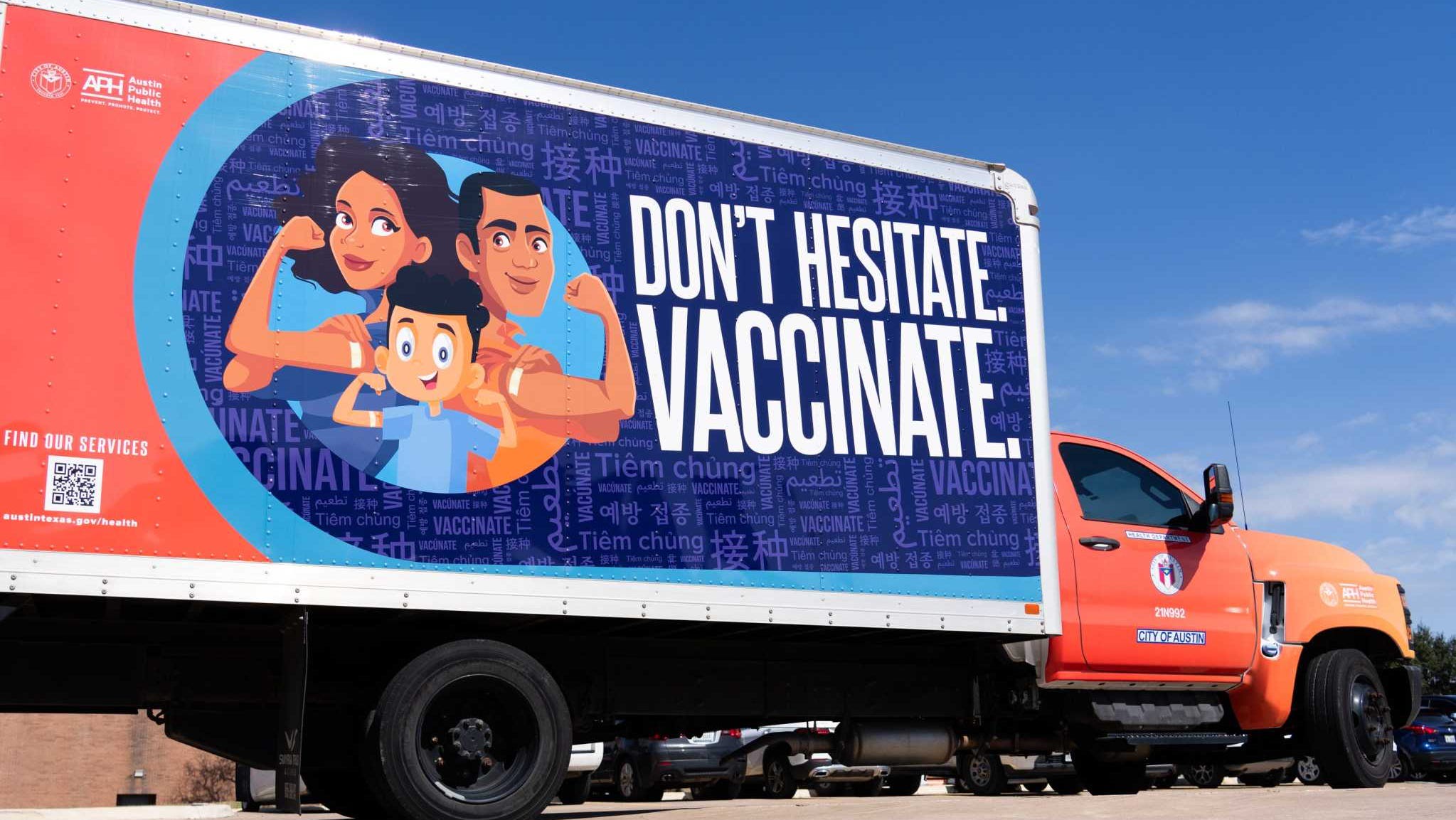news
Austin Public Health finds measles in the water
Measles has been found in the waste water in Austin. One of the most contagious diseases, measles is preventable through vaccination.
Published July 22, 2025 at 3:32pm

Austin Public Health has found measles in Austin's waste water.
The finding was from a sample taken July 6. Austin Public Health tests the water in our sewage treatment plants for infectious diseases weekly, but it takes two weeks to get the results back. The July 6 test was the most recent test results.
When the waste water test comes back positive, it means that someone with the disease has used the bathroom in our area, said Dr. Desmar Walkes, the public health authority for Austin and Travis County. It is not clear from the results how many people might be infected with the disease locally, she said, to cause the positive test results.
Because the tests were done July 6, it is unclear if this person was traveling through our area and is no longer here or if it was a resident. It also is unclear what if any impact the flood waters during that time had on the measles finding.
"Now is the time to get vaccinated if haven't gotten that protection," Walkes said.
No one new has tested positive for measles in Travis County, Walkes said, and there are no pending tests waiting for results. Previously, Travis County had one case in February and one in May. Both cases resolved themselves and were travel related.
Williamson County had six cases in May that were all related. Hays County also had one case in May.
Texas has reported 762 measles cases in the West Texas outbreak this year and 34 other cases throughout the state. Outbreaks happen when less than 95% of the population in one area has been vaccinated. In Texas, only 93.24% of kindergartners are vaccinated for measles, mumps and rubella. In Travis County, only 86.7% of kindergartners have been vaccinated.
It is not time to panic because of the findings of measles in the waste water, Walkes said. "It is time to prepare and plan," she said. "It's time to get your measles shots, it's time to make sure your children are ready for back to school; and it's time to make sure you yourself have checked on those that you love that have not been vaccinated and encourage them to get vaccinated."
Why is measles so concerning?
Measles is one of the most contagious diseases. It spreads by airborne particles and has a 90% infection rate among unvaccinated people exposed to a person with measles. The virus can live on surfaces for two hours after exposure.
It also has long-term consequences.
"Measles is not just an acute illness," said Dr. Amesh Adalja of the Johns Hopkins Center for Health Security. It causes "immune amnesia," which means people can lose their immune protection against other diseases. They also can develop swelling of the brain and other complications years later.
How can I get vaccinated?
Children typically are given the first dose of the vaccine for measles, mumps and rubella when they are 12 months old. They receive a second dose between 4 and 6 years old.
For vaccinations, contact your primary care provider or go through Austin Public Health or other public health authorities in your county. You can get vaccinated as an adult if you have not been vaccinated previously.
Austin Public Health offers vaccinations for free or reduced rates for children and adults who are uninsured or underinsured, or don't have Medicaid. The typical cost is $13 for children and $25 for adults. You can call (512) 972-5520 to make an appointment at the clinics at 405 W. Stassney Lane in South Austin or 7500 Blessing Avenue in Northeast Austin.
What are the symptoms of measles?
Anywhere from seven to 14 days after exposure, initial symptoms may include:
- Cough
- Runny nose
- Conjunctivitis
- Usually a fever of 103 to 104
Four days later:
- A rash that starts at the head and works its way down the body.
- The rash can start as sore spots in the mouth.
In severe cases:
- Inflammation of the lungs
- Pneumonia from a secondary infection
- Inflammation of the brain
How do I know if I have immunity?
People born before 1957 are presumed to have immunity because of the amount of measles that was present during that time. People born after that time need to make sure they have been vaccinated with two doses. If you were born between 1957 and 1968, you might not have immunity because the vaccine at the time didn't use a live virus.

